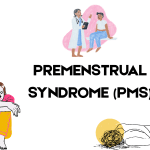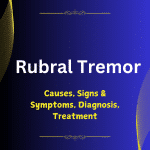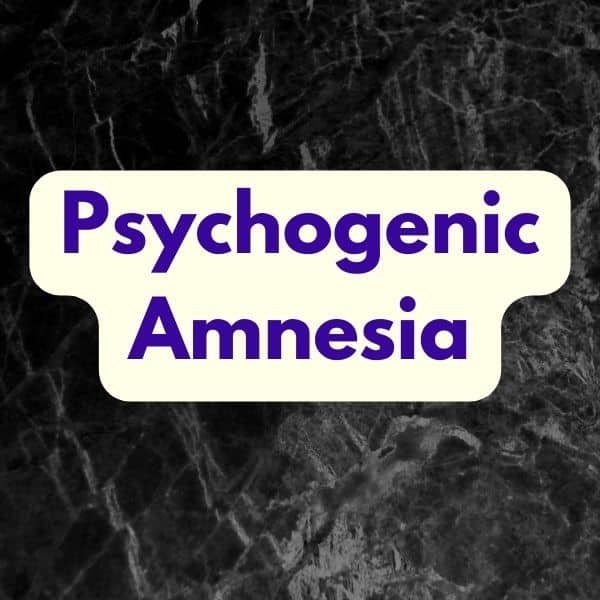Psychogenic Amnesia: What You Need to Know
Psychogenic amnesia is a memory disorder that occurs when a person experiences a sudden loss of memory for personal information or events, usually related to a traumatic or stressful situation. Psychogenic amnesia is also known as dissociative amnesia, functional amnesia, or situation-specific amnesia. It is different from organic amnesia, which is caused by brain damage or disease.
Types of Psychogenic Amnesia
There are several types of psychogenic amnesia, depending on the extent and duration of the memory loss:
- Localized amnesia: This is the most common type of psychogenic amnesia. It involves the inability to recall a specific period of time, usually around the occurrence of a traumatic event. For example, a person may not remember what happened during a car accident or a violent assault.
- Selective amnesia: This is a subtype of localized amnesia. It involves the inability to recall certain aspects or details of a traumatic event while retaining other memories. For example, a person may remember being in a war zone, but not the faces of their comrades or enemies.
- Generalized amnesia: This is a rare type of psychogenic amnesia. It involves the inability to recall any aspect of one’s personal history, including identity, family, friends, education, occupation, etc. It may affect the entire lifespan or only a portion of it. For example, a person may not remember anything about their life before the age of 20.
- Fugue state: This is another rare type of psychogenic amnesia. It involves not only the loss of personal memory but also the loss of personal identity and the adoption of a new identity and lifestyle. It is usually accompanied by physical relocation and wandering. For example, a person may suddenly leave their home and family, travel to another city or country, and assume a different name and occupation.
Causes of Psychogenic Amnesia
The exact causes of psychogenic amnesia are not fully understood, but it is believed that it is a psychological defense mechanism that helps the person cope with overwhelming emotional distress or trauma. Some possible triggers or risk factors for psychogenic amnesia are:
- Exposure to violence, abuse, war, natural disasters, accidents, etc.
- Personal or interpersonal conflicts, such as marital problems, divorce, bereavement, etc.
- Psychological disorders, such as depression, anxiety, post-traumatic stress disorder (PTSD), dissociative identity disorder (DID), etc.
- Substance abuse or withdrawal
- Physical illness or injury
- Medications or drugs
Symptoms of Psychogenic Amnesia
The main symptom of psychogenic amnesia is the inability to recall personal information or events that are normally easy to remember. The memory loss may be partial or complete and may affect recent or remote memories. The person may also experience:
- Confusion or disorientation
- Distress or anxiety
- Emotional numbness or detachment
- Identity confusion or alteration
- Impaired social functioning
- Impaired occupational functioning
Diagnosis of Psychogenic Amnesia
The diagnosis of psychogenic amnesia is based on clinical history and examination. The doctor will ask the person about their symptoms, medical history, mental health history, and any possible triggers for their memory loss. The doctor will also rule out any organic causes of amnesia by performing physical and neurological tests and imaging studies.
The doctor may also use psychological tests and interviews to assess the person’s memory functions and emotional state. The doctor may also consult with family members or friends who can provide additional information about the person’s background and behavior.
Treatment Options for Psychogenic Amnesia
There is no specific treatment for psychogenic amnesia, as it depends on the underlying cause and psychological factors. However, some possible treatment options are:
- Psychotherapy: This involves talking with a mental health professional who can help the person explore their feelings and thoughts related to their memory loss and trauma. Psychotherapy can also help the person develop coping skills and strategies to deal with stress and prevent relapse. Some types of psychotherapy that may be helpful are cognitive-behavioral therapy (CBT), which focuses on changing negative thoughts and behaviors that may contribute to memory loss and emotional problems; and psychodynamic therapy, which focuses on uncovering unconscious conflicts and motives that may underlie the memory loss.
- Hypnosis: This involves inducing a state of altered consciousness in which the person becomes more receptive to suggestions and guidance. Hypnosis can help the person access and recover their lost memories, as well as reduce their anxiety and distress. However, hypnosis should be used with caution, as it may also create false or distorted memories that are not based on reality.
- Medication: There is no medication that can directly treat psychogenic amnesia, but some drugs may help with the symptoms or co-occurring conditions. For example, antidepressants may help with depression, anxiety, or PTSD; benzodiazepines may help with anxiety or insomnia; and antipsychotics may help with psychosis or dissociation. However, medication should be used with caution, as it may also have side effects or interactions with other drugs.
- Supportive care: This involves providing the person with a safe and supportive environment, where they can feel comfortable and accepted. Supportive care can also involve educating the person and their family or friends about psychogenic amnesia, its causes, symptoms, and treatment options. Supportive care can also help the person reconnect with their identity, history, and social network.
Prognosis of Psychogenic Amnesia
The prognosis of psychogenic amnesia varies depending on the type, severity, duration, and cause of the memory loss. Some people may recover their memories spontaneously or gradually over time, while others may never regain them fully. Some factors that may influence the recovery are:
- The nature and intensity of the traumatic event
- The presence or absence of other psychological disorders
- The availability and quality of treatment and support
- The motivation and willingness of the person to recover their memories
Psychogenic amnesia can have a significant impact on a person’s life, affecting their personal relationships, work performance, self-esteem, and sense of identity. Therefore, it is important to seek professional help as soon as possible if one suspects they have psychogenic amnesia or knows someone who does.
Conclusion
Psychogenic amnesia is a memory disorder that occurs when a person experiences a sudden loss of memory for personal information or events, usually related to a traumatic or stressful situation. It is different from organic amnesia, which is caused by brain damage or disease. There are several types of psychogenic amnesias, such as localized amnesia, selective amnesia, generalized amnesia, and fugue state. The exact causes of psychogenic amnesia are not fully understood, but it is believed that it is a psychological defense mechanism that helps the person cope with overwhelming emotional distress or trauma.
FAQs
What is psychogenic amnesia?
Psychogenic amnesia is a memory disorder that occurs when a person experiences a sudden loss of memory for personal information or events, usually related to a traumatic or stressful situation.
What are the types of psychogenic amnesia?
There are several types of psychogenic amnesias, such as localized amnesia, selective amnesia, generalized amnesia, and fugue state.
What causes psychogenic amnesia?
The exact causes of psychogenic amnesia are not fully understood, but it is believed that it is a psychological defense mechanism that helps the person cope with overwhelming emotional distress or trauma.
How is psychogenic amnesia diagnosed?
The diagnosis of psychogenic amnesia is based on clinical history and examination, ruling out any organic causes of amnesia.
How is psychogenic amnesia treated?
The treatment of psychogenic amnesia depends on the type and severity of the memory loss, as well as the underlying cause and psychological factors. The main goals of treatment are to help the person recover their lost memories, cope with their emotional distress, and restore their normal functioning. Some possible treatment options are psychotherapy, hypnosis, medication, and supportive care.
What is the prognosis of psychogenic amnesia?
The prognosis of psychogenic amnesia varies depending on the type, severity, duration, and cause of the memory loss. Some people may recover their memories spontaneously or gradually over time, while others may never regain them fully. Psychogenic amnesia can have a significant impact on a person’s life, affecting their personal relationships, work performance, self-esteem, and sense of identity.
References
(1) Psychogenic amnesia – Wikipedia.
(2) Psychogenic Amnesia – an overview | ScienceDirect Topics.
(3) Psychogenic Amnesia: Complete guide to this memory loss.
(4) Psychogenic (dissociative) amnesia: Symptoms, causes, and treatment.
Latest Posts
- Premenstrual Syndrome (PMS) Explained: Powerful Relief Strategies for 2026

- Magnetic Seizure Therapy (MST): A Breakthrough in Psychiatric Treatment in 2025

- AIIMS New Delhi, NIMHANS Bengaluru, JIPMER Puducherry: No Leaves for Healthcare Workers Amid Tensions

- Narcissistic Personality Disorder in 2025: Unveiling the Hidden Struggles and Empowering Recovery

- Conquering Rubral Tremor: Unveiling Effective Treatments in 2025

